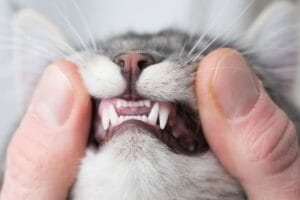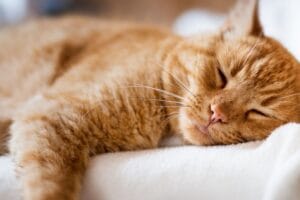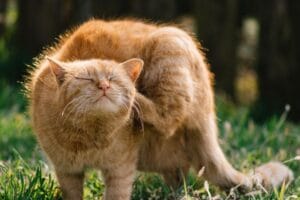Why Do Some Cats Eat Dog Food?
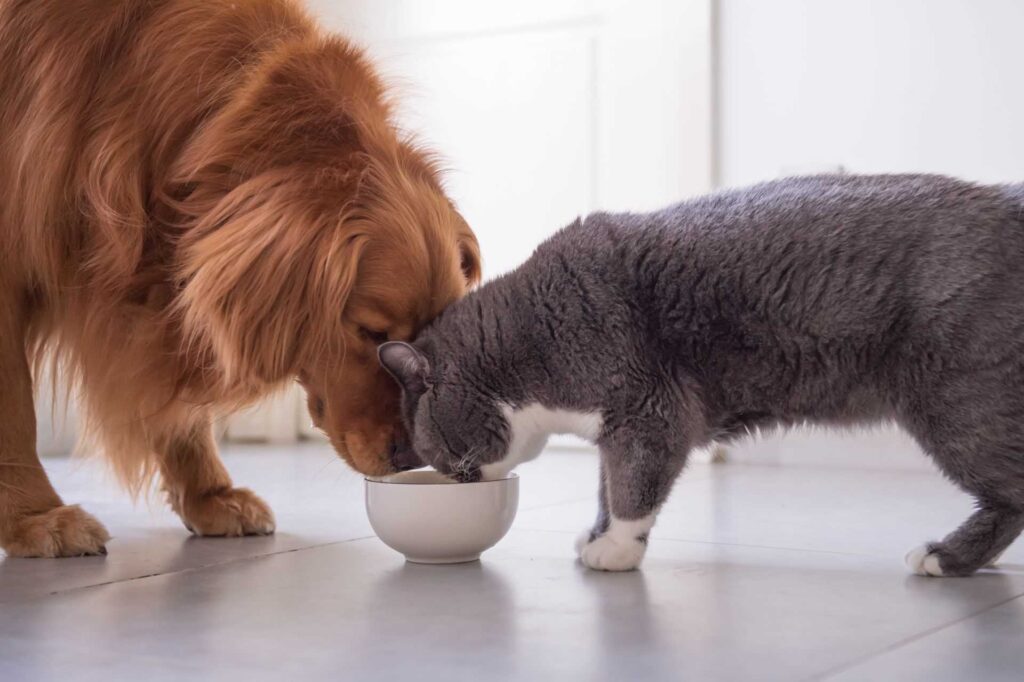
As a cat owner, you may be surprised to find that your cat sneaks a bite of the dog food every now and then. Cats are known to be finicky eaters, but some cats seem to have a strange affinity for dog food. In this article, we’ll explore the reasons why some cats eat dog food and whether it’s safe for them to do so.
Nutritional Differences Between Cat and Dog Food
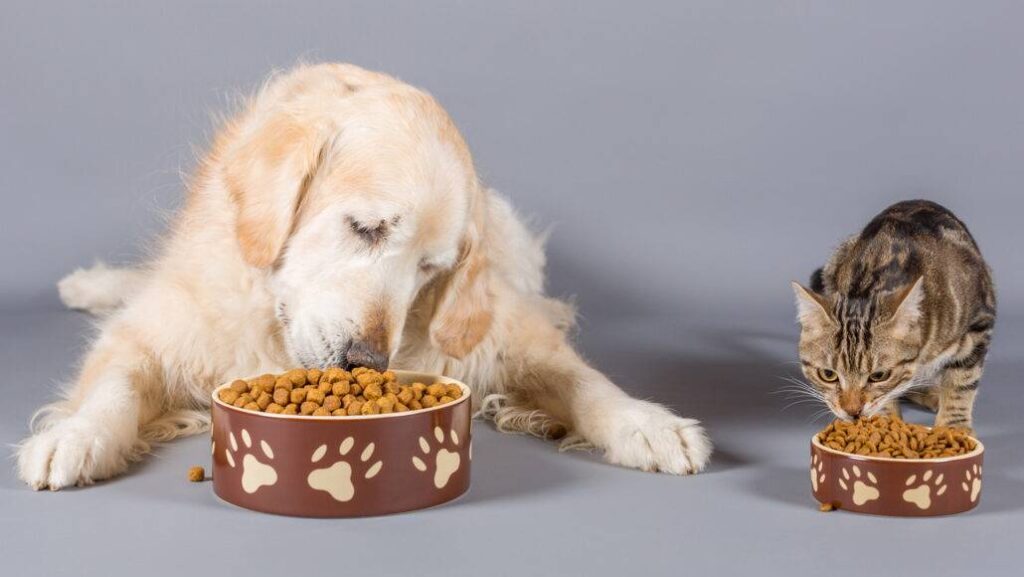
Pet food manufacturers formulate cat and dog food to meet their specific nutritional requirements. For example, cats require a higher amount of protein in their diet compared to dogs. Additionally, they also require certain amino acids that dogs don’t. Manufacturers formulate cat food with taurine, an essential amino acid that cats require but cannot produce themselves, whereas dogs can.
While dog food may seem like a reasonable alternative to cat food, it doesn’t contain the essential nutrients that cats need for optimal health. Feeding your cat dog food regularly can lead to nutritional deficiencies that can have serious health consequences. In particular, a lack of taurine can lead to blindness and heart problems in cats.
Although dog food is not toxic to cats, there are important differences in the nutritional needs of both animals. The general rule is that dog food is safe for healthy cats. However this doesn’t apply to cats with health conditions. Each cat is unique and may react differently to certain foods. It’s crucial to keep an eye on portion size and frequency. This is because long-term consumption of dog food can lead to a deficiency in essential nutrients. This can negatively impact your cat’s health. It’s essential to know the differences between cat and dog food. In order to provide your furry friend with the best diet possible.
Reasons Why Cats May Eat Dog Food
While it’s clear that cats require a different diet than dogs, some cats still seem to be drawn to dog food. Here are a few reasons why:
- Curiosity: Cats are curious animals, and they may simply be intrigued by the new smell and taste of dog food.
- Hunger: If your cat isn’t getting enough food, they may turn to dog food as a way to fill their belly.
- Preference: Some cats may prefer the taste of dog food over their own food. Otherwise, they may be picky eaters who simply refuse to eat anything else.
- Environmental factors: If your cat lives in a household with dogs, they may see the dogs eating dog food and want to try it themselves.
Risks of Feeding Your Cat Dog Food
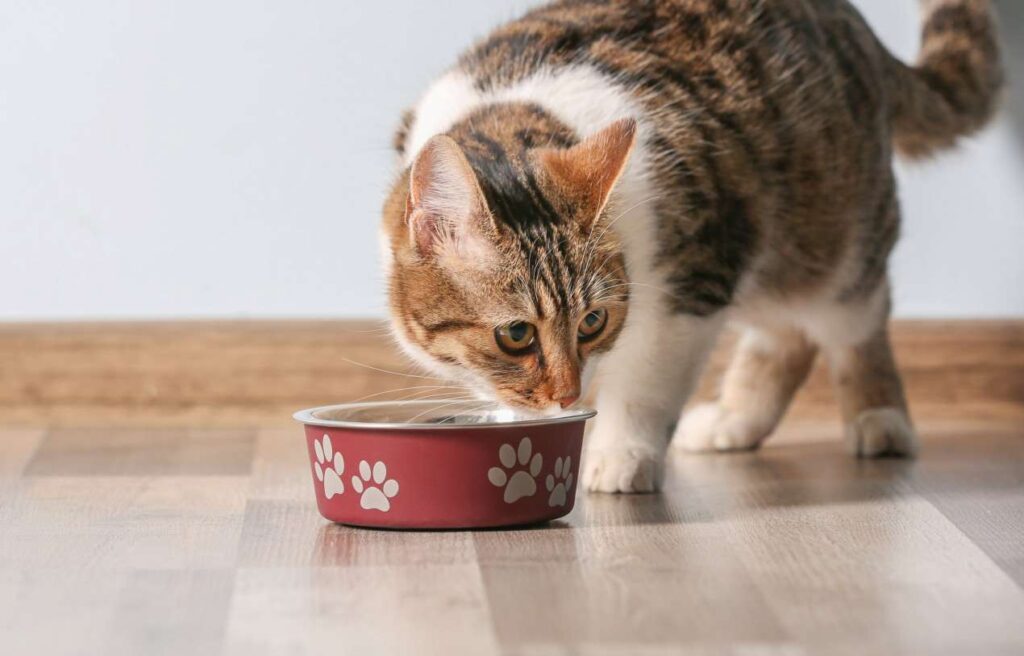
Cats and dogs have different nutritional requirements. Cats are obligate carnivores and need animal-based nutrients, like taurine. In contrast, dogs are omnivores and can consume animal and plant products. Feeding cats dog food can result in nutrient deficiencies, dehydration, and other health issues.
Although some might think that allowing cats to eat dog food is harmless, there are risks. Regular consumption of dog food can lead to nutritional deficiencies due to lack of essential nutrients for cats. Some dog foods contain toxic ingredients, such as garlic and onions, that can cause anemia in cats.
Additionally, feeding cats dog food can result in gastrointestinal problems like vomiting and diarrhea. This is because their digestive systems cannot properly process the food. It is important to provide cats with a balanced and appropriate diet to avoid health risks.
Should You Continue Giving Your Cat Dog Food?
Although cats are able to consume dog food in small amounts, it is not a recommended long-term solution for their dietary needs. While it may seem harmless for a cat to sneak a few bites from the dog’s bowl, it is important to recognize that cats and dogs have very different nutritional requirements. Feeding cats dog food regularly can lead to deficiencies in essential nutrients like taurine, which can have negative effects on their health and well-being.
What To Do If Your Cat Eats Dog Food
If your cat sneaks a few bites of dog food, it’s generally not a concern as long as your cat is healthy. However, it’s important to monitor your cat for any potential reactions such as diarrhea, vomiting, or weight loss. If your cat exhibits any signs of illness, it’s best to consult with your veterinarian. However, if your cat has an allergy or underlying health issue, consuming dog food can be more problematic. To ensure that you are meeting your cat’s nutritional needs, it is important to consult with a veterinarian in such cases.
Conclusion
In conclusion, while it may be tempting to let your cat have a taste of your dog’s food or use it as a quick solution in case of a food shortage, it’s important to remember that cats have specific dietary requirements that differ from dogs.
Regularly feeding your cat dog food can lead to health problems and nutritional deficiencies, particularly if your cat has underlying health conditions. Therefore, it’s best to provide your cat with a balanced and appropriate diet that meets their nutritional needs. Always consult with your veterinarian if you have any concerns about your cat’s health or diet.
